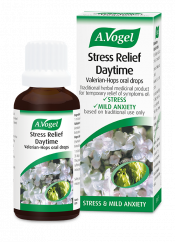Fear!
Fear! How many of us fall prey to it? It can eat away at us like a parasite in the brain, robbing us of our rest times, stealing our sleep and whittling away our well-being.
We fret over finances, worry about work, obsess about others and yet the serenity and peace we are seeking never comes by following the path into the deep dark labyrinth of the mind where fear would have us follow.
I am not talking here about substantiated fears e.g. suddenly finding our life in danger or witnessing a shocking event when understandably our adrenal system kicks into full-on fight or flight! I am talking instead about the more insidious ’ what ifs? when our brain gets hold of one fearful thought and runs with it, projecting an instant future of only doom, gloom and disaster.
Let me give you some examples:
- I’ve had a headache for two days, there must be something seriously wrong with me
- My husband is very quiet, clearly something’s wrong
- I’ve booked to go on holiday, but what if the plane crashes?
- I haven’t heard from my son this week, something must have happened to him
- My boss has given me a task but I’m going to fail
Whatever the thought, you know it’s not going to take you to a helpful place if you keep pursuing it. The key is beginning to recognise when these fears kick in and stopping them in their tracks by setting up a plan of action to restore a sense of sanity.
Here are a few of my favourite ways of dealing with fear all tried and tested by friends, colleagues and coaching clients:
Expose it to light – talk to someone you trust, a friend, a family member, a healthcare provider…fears thrive in the dark. When you talk about them, they lose their power and another person’s perspective can be helpful in determining what is and isn’t a true threat and what action can be taken.
Put the problem on hold – given that fearful thinking tends to lead to an even more fearful state of mind it’s worth remembering that we tend not to solve a problem in the same state of mind as when it was created. Try to detach and shift your focus to a more healthy place by using some of the following strategies.
Self-care
Physically – fear tends to be a very ‘heady’ experience, disconnecting us from our bodies and the present moment. Take whatever action is needed to help ground you: go for a walk, put your feet in some warm water, concentrate on your senses, do some exercise or change your environment. Avoid stressing your nervous system further with too much caffeine, sugar or alcohol.
Mentally – as the saying goes, ‘the mind makes a great slave but a terrible master.’ This is certainly true when fear kicks in so give the mind a useful goal and a focus. Avoid isolation and getting stuck with the thoughts. Instead you may want to go and see a film, read a book or focus on a creative hobby that requires mental attention.
Emotionally – fear can make us feel very unsafe so seek out people, places and things that make you feel safe, nurtured and happy. Be kind, forgiving and compassionate with yourself as you would be with a frightened child. Blaming or shaming yourself only makes matters worse.
Spiritually – the opposite of fear is faith. Whatever your personal beliefs, it can be helpful to sit quietly in meditation, somewhere where you feel comfortable, and ask for guidance. Find ways to help you tap into a greater source of good/love and, to quote from the last of Alfred Vogel’s 8 principles on life, ’in all your striving, let love be your guide, it is the greatest power in the universe.’
Seek support
Don’t suffer in silence if fears continue to plague you. Here are a few suggested routes you could follow that may help address, challenge and potentially change unwanted thoughts.
GP – to discuss symptoms and enquire about Cognitive Behavioural Therapy (used to address and tackle negative thoughts)
http://www.nhs.uk/conditions/Cognitive-behavioural-therapy/Pages/Introduction.aspx
Hypnotherapy –
http://www.hypnotherapy-directory.org.uk/
NLP and Life Coaching – NLP or Life coaching are other techniques used to help individuals tap into their own inner resources and find new ways to overcome challenging situations. Both are helpful as they work to empower the individual and this, in turn, can boost self confidence.
http://www.lifecoach-directory.org.uk/
http://www.britishinstituteofhypnotherapy-nlp.com/findingasuitablepractitioner/search/
Herbal help
The following herbs have been used traditionally to help with symptoms of anxiety. Always read the patient information leaflet and refer to your healthcare provider:
Stress Relief Daytime
Passiflora Complex
Avenacalm
Flower essences can also be very helpful at restoring a sense of emotional balance.
The worst thing we can do is sit alone with our fears. If we hide away, feeling ashamed of having them, they will hide away with us. Fear troubles us all at some time in our lives so why not get brave, get honest, take action and help someone else who may also be suffering..








